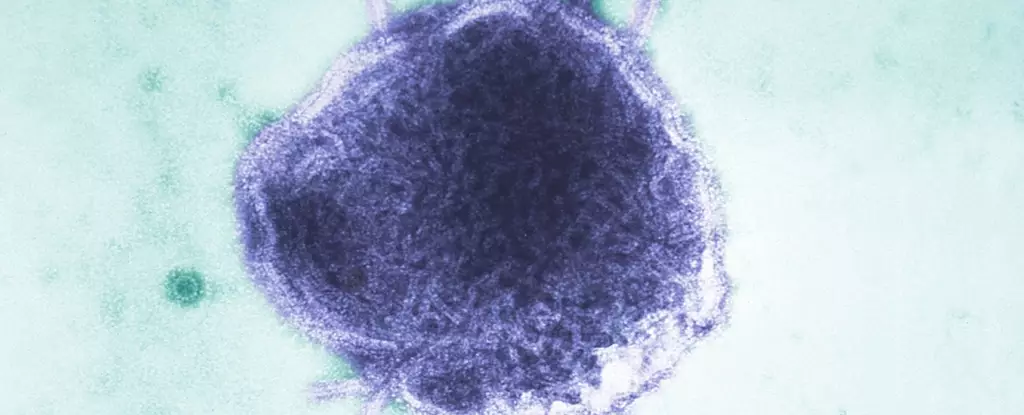Recent years have witnessed a stark resurgence of measles, a disease once thought to be eradicated in certain regions. The alarming increase of measles cases across North America and Europe calls for immediate attention. In particular, the statistics from 2025 are especially concerning, revealing a dramatic rise in infections. Specifically, both the U.S. and Canada have experienced an unprecedented spike in cases, signaling a larger public health crisis that was previously managed through effective vaccination programs. Once almost eliminated, measles is making a bold comeback, and this resurgence is a glaring indication of the vulnerabilities lying within our healthcare systems and societal practices.
In the U.S., health authorities confirmed 935 measles cases by May 2025, marking a 2.3-fold increase from 2024’s total of only 285. This surge includes significant outbreaks concentrated in Texas, which alone accounted for over 700 cases. On the Canadian front, the outbreak is similarly severe, with reported infections exceeding 1,000. Over in Europe, the figures are even more alarming: the rates of measles have reached their highest levels in 25 years. The World Health Organization has categorized both North and South America as ‘at high risk’ for the disease, presenting a clear call to action for communities, policymakers, and public health advocates.
The Role of Vaccination in Preventing Measles
Vaccination is our strongest weapon against measles. Introduced as a comprehensive public health strategy in the 1960s, the measles vaccine has successfully reduced incidence rates significantly. This success story, however, seems to be faltering in recent years due to a noticeable decline in vaccination uptake. Recent studies predict a staggering 21% of U.S. children—approximately 15 million—could be vulnerable to measles within five years if current trends persist. This troubling prediction underscores an urgent need for a concerted public health effort focused on increasing vaccination rates.
One of the critical factors leading to this decline is vaccine hesitancy. Distrust of vaccines, fueled by misinformation and anecdotal evidence, has led many families to opt-out of immunization programs. The pandemic further complicated these issues, as public health initiatives took a backseat during COVID-19. Many children missed routine vaccinations, creating a breeding ground for infections. This has spurred fears that measles could once again become endemic in the U.S., effectively transforming what was once an eradicated disease into a prevalent health threat.
Impacts of Herd Immunity and Community Health
Herd immunity is crucial in safeguarding communities against highly contagious diseases like measles. For measles, a vaccination rate of 95% is required within the populace to effectively create herd immunity. Unfortunately, vaccination rates have plunged, with some communities falling well below this threshold. This lapse can instigate outbreaks, leading to community-wide repercussions—including hospitalizations and even fatalities, as seen with the tragic deaths in Texas.
Moreover, the socio-economic factors exacerbating these trends cannot be overlooked. Vaccine hesitancy is often rooted in broader societal issues such as access to healthcare, education levels, and cultural beliefs surrounding medicine. Disparities in healthcare access fuel this crisis, with many disadvantaged communities already struggling with health inequities. To combat this resurgence effectively, a multi-faceted approach is essential—one that addresses both the medical and social determinants of health.
Urgency for Public Health Advocacy and Policy Change
Public health officials and advocates must come together to confront this rising tide of measles. Initiatives should not only focus on getting the message about vaccination out to the public but also work on restoring trust in vaccines overall. Campaigns aimed at educating parents on vaccine safety, effectiveness, and the dire consequences of avoiding vaccinations are essential. Additionally, ensuring that vaccines remain accessible to all children regardless of socio-economic status must be a priority if we are to reverse the trend of rising measles cases.
The fall-out from a sustained increase in measles cases could lead to catastrophic outcomes for public health in the U.S. and beyond. With studies warning of potential case numbers reaching 850,000 over the next quarter-century if trends remain stagnant, now is the time for action. Public health organizations must amplify their efforts, promoting comprehensive vaccination programs, countering misinformation, and building community trust in immunization.
The impending threat of measles returning offers a crucial lesson: complacency in public health can have dire consequences. Our collective responsibility to prioritize vaccinations, educate the public, and advocate for systemic changes within healthcare settings is more pressing than ever. The world must take heed—an outbreak today could become an epidemic tomorrow, and reigning in measles requires an unyielding commitment from every sector of society.


Leave a Reply